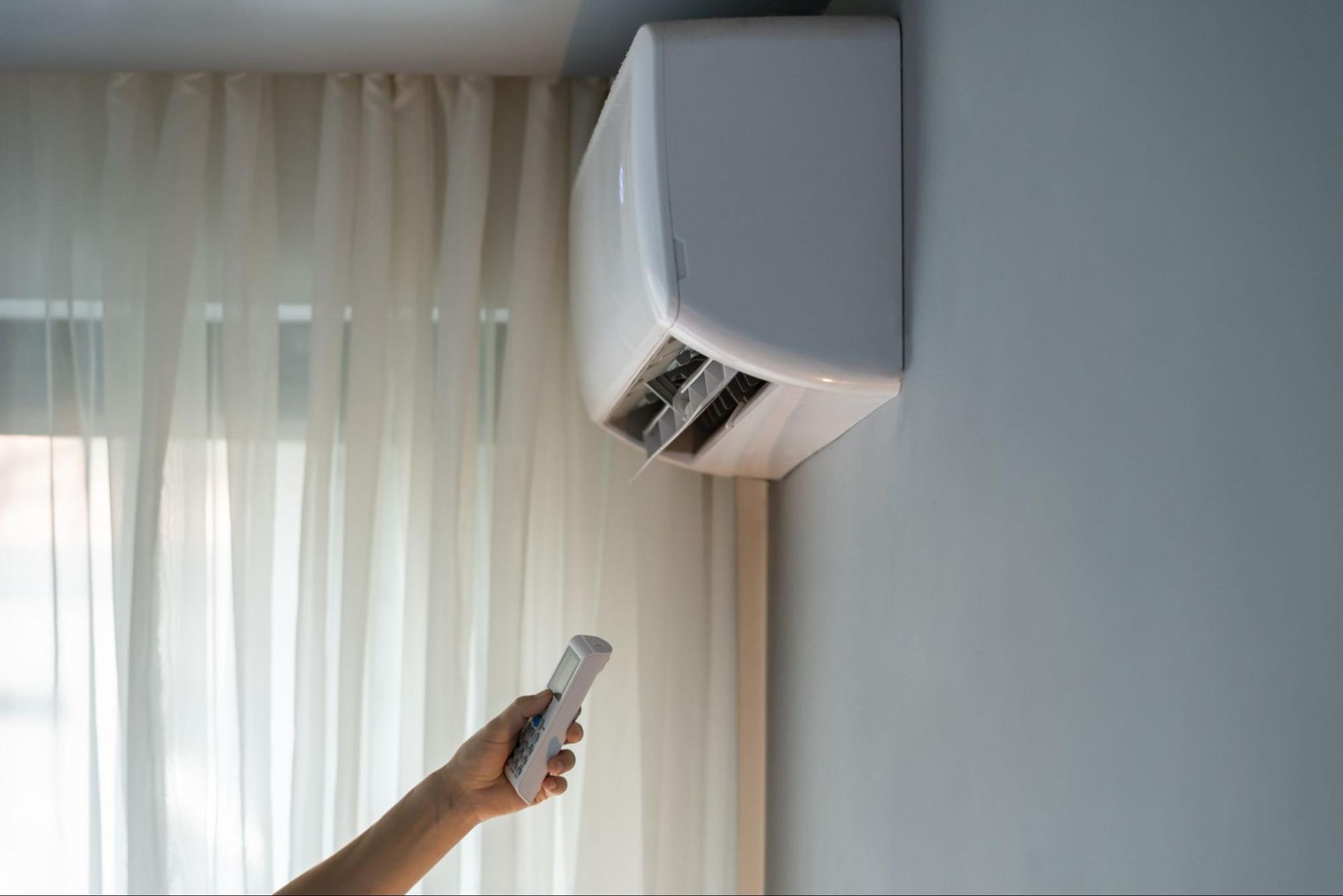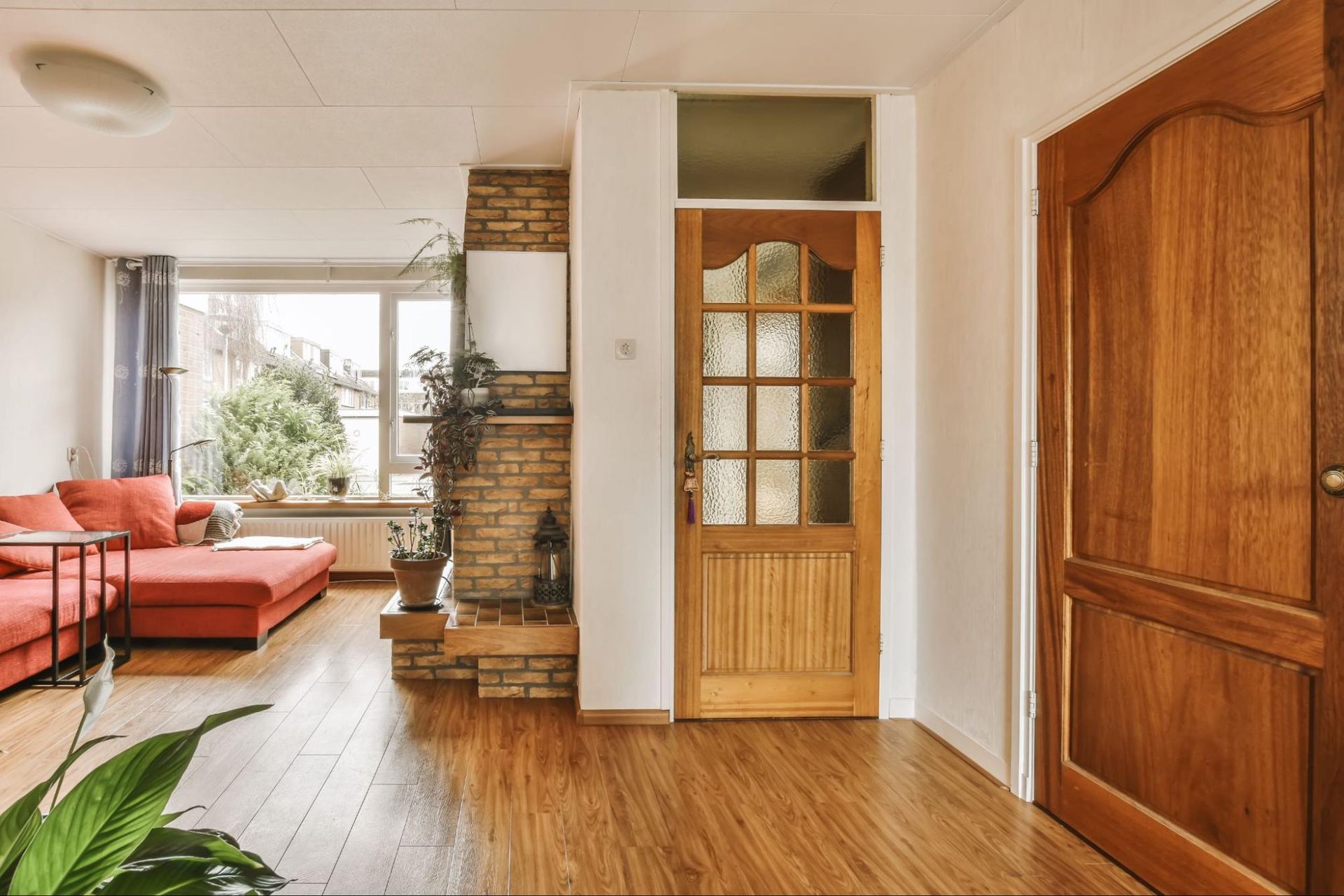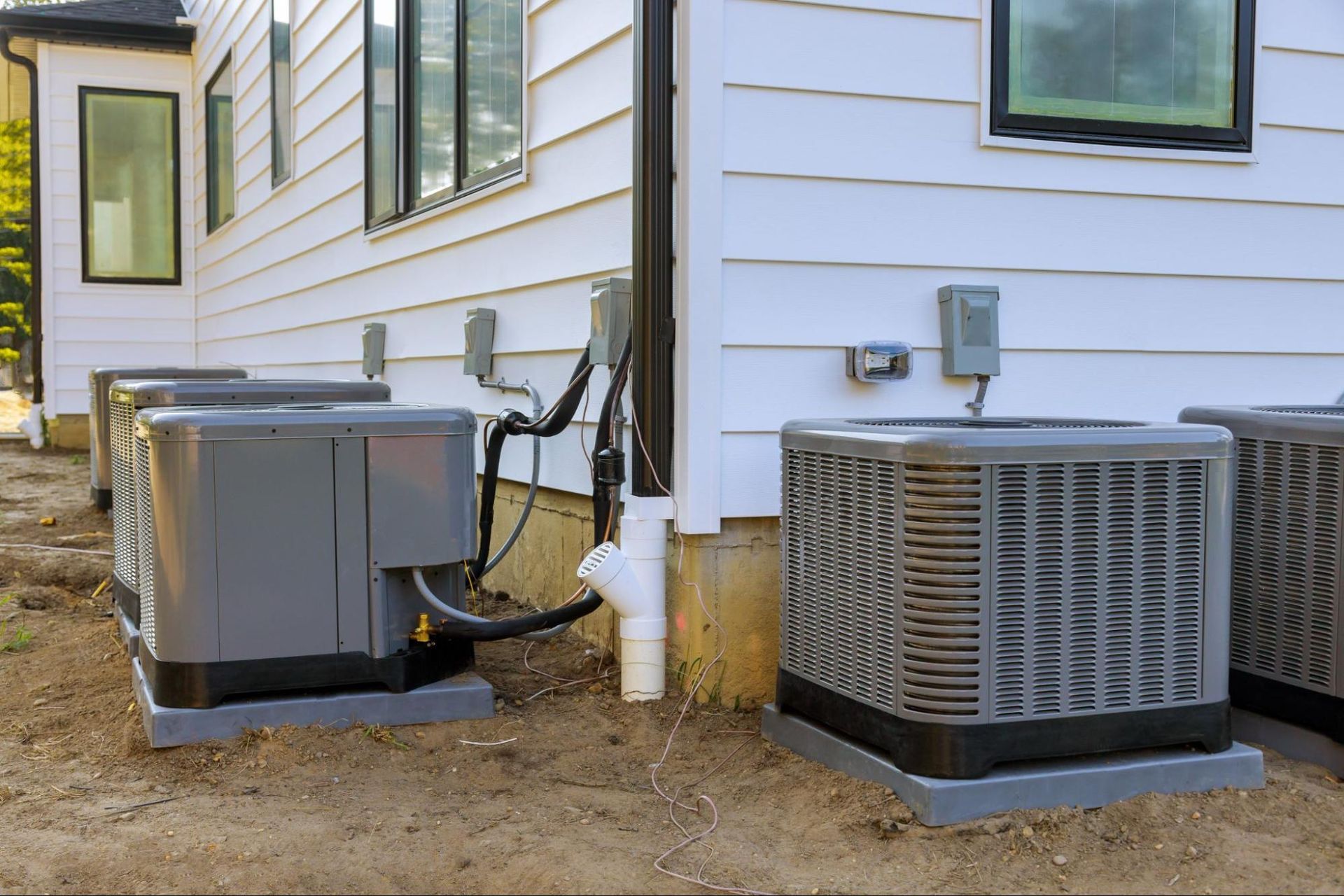Home Inspection Company with RAS Certification: Why This Credential Matters for Your Property
When searching for a home inspection company with RAS certification, homeowners often face an uphill battle. From unreliable evaluations to inconsistent reporting and missed deadlines, the inspection process can quickly become a major source of stress during property transactions.
Accurate Home and Commercial Services stands apart from the competition with their prestigious RAS certification, offering peace of mind to anxious buyers and sellers. Their team of certified professionals delivers thorough inspections that identify potential issues before they become costly problems.
With detailed reports, clear communication, and punctual service, they've transformed what was once a nerve-wracking experience into a smooth, informative process for property owners across the region.
What Is RAS Certification in Home Inspections?
RAS certification stands for Registered Accessibility Specialist, a credential that authorizes home inspection professionals to evaluate properties for compliance with Texas Accessibility Standards (TAS). This specialized certification equips inspectors with the knowledge to assess whether buildings accommodate individuals with disabilities according to state regulations.
A home inspection company with RAS certification offers significant advantages for property owners and developers. These certified specialists conduct thorough evaluations of architectural elements including ramps, doorways, parking spaces, and bathroom facilities to ensure they meet accessibility requirements.
Their expertise extends beyond standard home inspections to include detailed accessibility compliance reviews.
RAS-certified inspectors undergo rigorous training covering the Americans with Disabilities Act (ADA) standards and Texas-specific accessibility laws. This comprehensive education enables them to identify potential barriers that might prevent equal access for all individuals.
For construction projects in Texas, RAS inspections aren't just recommended—they're legally required.
The certification process involves extensive study, examination, and continuing education to maintain current knowledge of evolving accessibility codes. Inspectors must demonstrate proficiency in technical aspects of building accessibility and familiarity with relevant legal frameworks.
By choosing a home inspection company with RAS certification, property owners gain access to professionals qualified to provide both standard inspections and specialized accessibility assessments under a single service provider.
Benefits of Hiring a Home Inspection Company with RAS Certification
Homeowners gain significant advantages when working with RAS-certified inspection companies. These specialized professionals bring added value through their extensive knowledge of accessibility standards and compliance requirements that extend beyond traditional home inspections.
Enhanced Quality Assurance
RAS-certified home inspectors deliver superior quality assurance through their specialized training in accessibility standards. Their expertise encompasses evaluating properties against Texas Accessibility Standards with precision and attention to detail unmatched by non-certified inspectors.
These professionals identify compliance issues that commonly go unnoticed during standard inspections, including doorway widths, ramp gradients, bathroom configurations, and parking area designs.
Companies like Accurate Home and Commercial Services leverage their RAS certification to provide thorough documentation with comprehensive photographic evidence and detailed measurements. This meticulous approach reduces liability risks for property owners, builders, and developers by ensuring all accessibility requirements are properly addressed before project completion.
RAS-certified inspections also facilitate smoother approval processes with local building authorities since these inspections meet the stringent requirements mandated by Texas law for commercial projects.
Comprehensive Risk Assessment
A home inspection company with RAS certification delivers more thorough risk assessment capabilities compared to standard inspection services. RAS-certified inspectors evaluate properties through the lens of accessibility compliance, identifying potential legal and financial risks that might otherwise remain hidden.
Their specialized training enables them to spot architectural barriers that could violate the Texas Accessibility Standards and result in costly remediation requirements later.
When hiring a RAS-certified inspection company, property owners receive protection against potential discrimination claims related to accessibility issues. These certified professionals understand the nuanced requirements of the Americans with Disabilities Act as applied through Texas regulations, helping clients avoid penalties for non-compliance that can reach thousands of dollars.
The detailed reports generated during a RAS inspection serve as valuable documentation for property transactions, construction approvals, and legal protection. For projects in Texas, working with a home inspection company with RAS certification isn't just beneficial—it's essential for meeting legal requirements while ensuring accessibility for all potential occupants.
Key Services Offered by RAS-Certified Home Inspection Companies
RAS-certified home inspection companies provide specialized services that go beyond standard inspections. These companies employ Registered Accessibility Specialists who evaluate properties for accessibility compliance while delivering comprehensive inspection services.
Accessibility Plan Reviews
Accessibility plan reviews form a core service of RAS-certified inspection companies. These reviews examine architectural drawings and blueprints to identify potential barriers before construction begins.
RAS inspectors meticulously analyze doorway widths, hallway dimensions, ramp slopes, and bathroom layouts against Texas Accessibility Standards and ADA requirements. For renovation projects, plan reviews highlight areas requiring modification to meet current accessibility codes.
This proactive approach saves property owners from costly post-construction corrections by addressing accessibility issues during the planning phase. RAS inspectors provide detailed documentation of compliance issues with specific recommendations for achieving accessibility standards.
Accessibility Final Inspections
RAS-certified inspectors conduct thorough final inspections to verify completed projects meet all accessibility requirements. These inspections include comprehensive on-site evaluations of all architectural elements including entrances, pathways, restrooms, and public spaces.
Inspectors measure doorway clearances, check ramp inclines, verify appropriate placement of grab bars, and ensure proper height of controls and fixtures. Final inspections identify any deviations from approved plans or code requirements that need correction.
For projects in Texas, these inspections fulfill legal requirements for accessibility compliance certification. Property owners receive detailed reports documenting compliance status and any necessary remediation steps.
Project Registration
RAS-certified home inspection companies handle project registration with relevant state authorities. They complete all required documentation and submit applications to register construction projects with the Texas Department of Licensing and Regulation (TDLR).
This service includes preparation of architectural barrier project numbers, filing of appropriate forms, and tracking application status throughout the approval process. Registration services ensure projects meet statutory filing requirements and deadlines to avoid potential penalties.
For property owners, this administrative support streamlines the compliance process by managing paperwork and maintaining proper documentation. Professional registration services protect clients from common procedural errors that could delay project approval.
Structural Evaluations
RAS-certified inspectors perform detailed structural evaluations as part of their comprehensive service offerings. These assessments examine foundation integrity, load-bearing wall stability, roof systems, and overall building soundness.
Inspectors identify structural concerns such as foundation settling, wall cracks, roof sagging, or improper construction techniques that compromise building safety. Their evaluations include moisture intrusion assessment to detect water damage affecting structural elements.
RAS inspectors use specialized tools including moisture meters, thermal imaging cameras, and level measurements to quantify structural issues. Their expertise combines accessibility knowledge with structural assessment skills, allowing them to identify potential structural modifications needed for accessibility compliance.
Systems and Component Analysis
Systems and component analysis from a home inspection company with RAS certification provides comprehensive evaluation of property mechanics. RAS-certified inspectors examine electrical systems for code compliance, proper installation, and potential safety hazards while simultaneously assessing these components for accessibility.
Plumbing systems evaluations include testing water pressure, checking for leaks, and verifying appropriate fixture heights and clearances for accessibility. HVAC system inspections assess operational efficiency, installation quality, and thermostat placement accessibility.
Inspectors also evaluate door hardware, window operations, and appliance controls for ease of use by individuals with disabilities. This dual focus on operational integrity and accessibility makes RAS-certified inspections particularly valuable for commercial properties and residential units serving diverse populations.
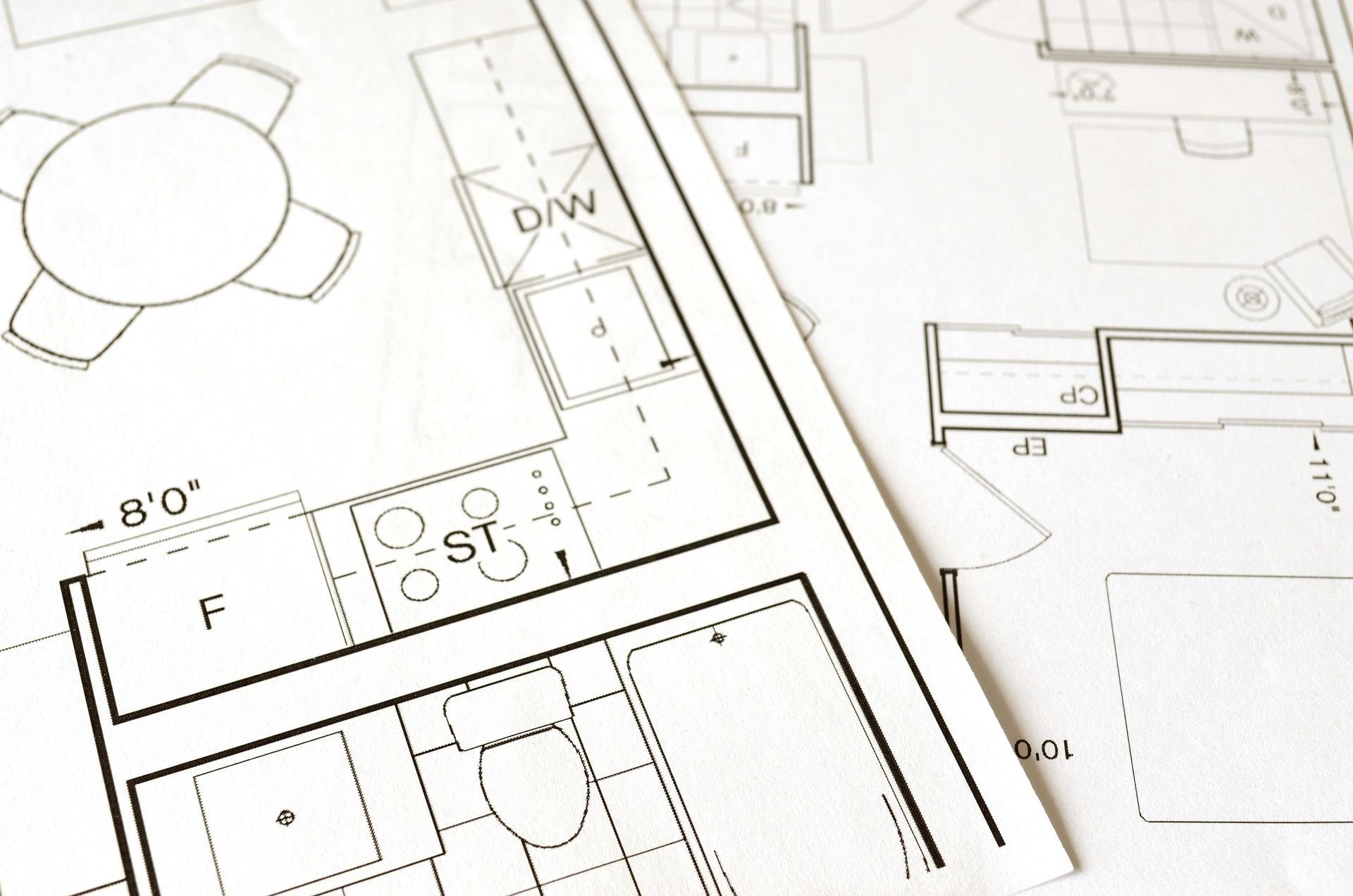
How to Choose the Right RAS-Certified Home Inspection Company
Selecting a qualified RAS-certified home inspection company requires careful consideration of several key factors. The right inspector ensures compliance with Texas Accessibility Standards while providing thorough, reliable service for your property.
Credentials and Experience to Look For
RAS certification verification marks the first step in selecting a qualified home inspection company. Legitimate RAS-certified inspectors possess current credentials issued by the Texas Department of Licensing and Regulation (TDLR), which can be verified through the TDLR website.
Experience matters significantly—companies with 5+ years of RAS inspection history demonstrate proven expertise in accessibility evaluations. Look for inspectors with complementary certifications such as ICC (International Code Council) credentials or ADA specialization.
Professional affiliations with organizations like TREC (Texas Real Estate Commission) or InterNACHI indicate commitment to industry standards. Review the company's project portfolio focusing on properties similar to yours, including commercial buildings, public facilities, or residential complexes depending on your needs.
Companies that handle diverse property types across multiple locations offer broader expertise in Texas accessibility requirements.
Questions to Ask Before Hiring
Interview potential RAS-certified home inspection companies with specific questions about their inspection approach. Ask "What specific components do you evaluate during a RAS certification inspection?" to verify their knowledge of Texas Accessibility Standards requirements.
Inquire about their report format: "Can you provide a sample inspection report?" to assess thoroughness and clarity. Request details on their timeline: "What's your typical turnaround for completing full RAS inspections and delivering reports?"
Determine their availability for follow-up questions with "How do you handle post-inspection consultations?" Discuss remediation support by asking "Do you provide guidance for addressing identified accessibility issues?"
Question their communication process: "How will you keep me updated throughout the inspection process?" Ask about their experience with similar properties: "Have you conducted RAS inspections for properties like mine?"
Establish their fee structure by asking "What factors affect your pricing for home inspection with RAS certification?" These questions help identify inspectors who combine technical expertise with client-focused service.
The Home Inspection Process with RAS-Certified Professionals
RAS-certified home inspection professionals follow a structured and thorough process designed to ensure comprehensive property evaluations. These specialized inspectors combine standard home inspection protocols with detailed accessibility compliance reviews, providing property owners with complete assessment documentation that meets both Texas Accessibility Standards and general safety requirements.
What to Expect During the Inspection
RAS-certified inspections begin with a comprehensive property walkthrough that typically takes 2-4 hours depending on the size and complexity of the building. Inspectors examine structural elements including foundation, roof, and load-bearing components while evaluating accessibility features such as doorway widths, ramp slopes, bathroom configurations, and parking accommodations.
During the process, inspectors document findings with detailed photographs and measurements using specialized tools to verify compliance with exact TAS specifications. Property owners receive real-time explanations about potential accessibility concerns and code violations, creating transparency throughout the evaluation.
Inspectors assess both existing conditions and planned modifications, with particular attention to entry points, navigation paths, and facility usability for individuals with disabilities. This systematic approach ensures that no accessibility requirements are overlooked during the comprehensive property assessment.
Understanding Your Inspection Report
Home inspection reports from RAS-certified professionals contain detailed sections addressing both standard property conditions and specific accessibility compliance findings. These reports include color-coded severity indicators that prioritize issues from critical violations to minor recommendations, helping property owners understand which items require immediate attention.
Each report highlights specific TAS compliance categories including parking, accessible routes, entrances, bathroom facilities, and signage requirements. Reports contain precise measurements, photographic evidence, and direct references to applicable Texas Accessibility Standards codes, creating comprehensive documentation for regulatory submissions.
RAS-certified home inspection companies provide follow-up consultations to explain complex technical findings and outline potential remediation strategies. The reports serve as valuable legal protection documents that verify compliance efforts and demonstrate due diligence in meeting accessibility requirements.
Property owners receive both digital and printed versions of these detailed reports, typically within 24-48 hours after inspection completion, ensuring timely information for decision-making in property transactions or improvement planning.
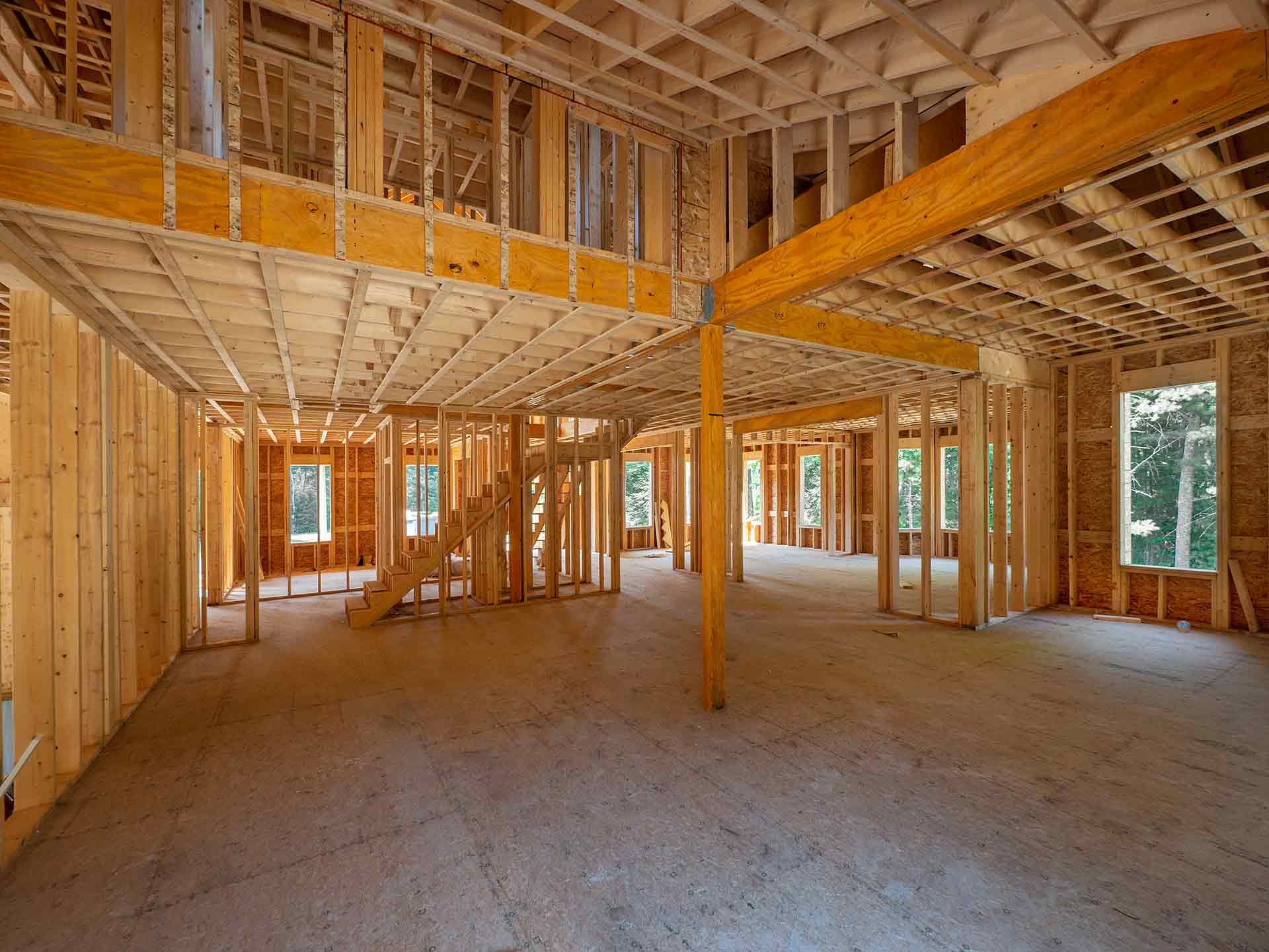
Cost Considerations for RAS-Certified Home Inspections
The pricing structure for RAS-certified home inspections reflects the specialized expertise and compliance requirements these professionals bring to property evaluations. RAS certification demands extensive training and knowledge of Texas Accessibility Standards, factors that influence the overall cost of these specialized services.
Base Pricing Structure
RAS-certified home inspections typically cost more than standard inspections due to the specialized nature of accessibility compliance reviews. Most RAS-certified companies structure their fees based on project scope, square footage, and complexity.
Companies like Accurate Home and Commercial Services offer transparent pricing that includes both the standard inspection components and the specialized RAS evaluation.
Additional Services and Their Costs
RAS-certified inspections often include optional add-on services that affect the final price. Document filing with state authorities carries administrative fees separate from the inspection itself.
Expedited services for urgent compliance deadlines typically incur rush charges. Follow-up inspections to verify remediation of identified issues represent another potential cost.
Many RAS-certified inspectors offer bundled service packages that provide cost savings compared to purchasing services individually.
Value Proposition of RAS-Certified Inspections
The investment in RAS-certified home inspections delivers value through risk mitigation and compliance assurance. Professional accessibility evaluations help property owners avoid potential fines and legal expenses from non-compliance issues.
The detailed documentation provided serves as evidence of due diligence in meeting accessibility requirements. RAS-certified inspections from reputable companies like Accurate Home and Commercial Services offer peace of mind that accessibility standards have been properly assessed by qualified professionals with RAS certification.
Conclusion
Choosing a home inspection company with RAS certification represents a significant advantage for property owners in Texas. These specialized professionals bring unmatched expertise in accessibility compliance while delivering comprehensive property evaluations that protect investments and ensure legal adherence.
The investment in RAS-certified inspections pays dividends through reduced liability risk thorough documentation and smoother regulatory processes. For construction projects this expertise isn't just valuable—it's required by law.
Accurate Home and Commercial Services exemplifies the gold standard in this specialized field combining RAS certification with customer-focused service. Their approach transforms what could be a stressful obligation into a valuable opportunity to gain clarity confidence and peace of mind throughout the property transaction process.
Frequently Asked Questions
What is RAS certification for home inspectors?
RAS (Registered Accessibility Specialist) certification authorizes home inspection professionals to evaluate properties for Texas Accessibility Standards compliance. These specialists are trained to assess architectural elements for accessibility, ensuring buildings accommodate individuals with disabilities.
The certification requires extensive training in ADA standards and Texas-specific accessibility laws, making RAS inspectors uniquely qualified to identify potential barriers to accessibility.
Why is RAS certification important for property owners in Texas?
For Texas construction projects, RAS inspections are legally required. Having a RAS-certified inspector helps property owners avoid potential legal and financial penalties related to accessibility non-compliance.
These specialized inspectors provide thorough evaluations that identify issues often missed in standard inspections, reducing liability risks and facilitating smoother approval processes with local authorities.
What services do RAS-certified home inspection companies offer?
RAS-certified companies provide accessibility plan reviews, final inspections, project registration with state authorities, structural evaluations, and systems analysis.
They identify potential barriers in architectural designs before construction, verify completed projects meet accessibility requirements, ensure legal documentation compliance, assess building integrity, and examine mechanical components for both operational performance and accessibility.
How long does a RAS-certified home inspection take?
A typical RAS-certified home inspection lasts 2-4 hours, depending on property size and complexity. The process includes a comprehensive walkthrough examining structural elements and accessibility features.
Inspectors document findings with photographs and measurements while providing real-time explanations of potential concerns to property owners.
How much does a RAS-certified home inspection cost?
RAS-certified inspections typically cost more than standard inspections due to specialized expertise. Pricing varies based on project scope, square footage, and complexity.
Additional services like document filing or expedited reviews may increase the final cost.
How do I choose the right RAS-certified inspection company?
Verify the inspector has current RAS certification from the Texas Department of Licensing and Regulation (TDLR) and at least five years of experience in RAS inspections.
Ask specific questions about their knowledge of accessibility standards, communication style, and experience with properties similar to yours. Check references and review sample reports to ensure they provide thorough and reliable service.
What information is included in a RAS inspection report?
RAS inspection reports contain detailed sections on property conditions and accessibility compliance with color-coded severity indicators and precise measurements.
They document structural elements, potential hazards, and accessibility features with photographs. Reports serve as legal documentation and typically include follow-up consultations to explain findings and remediation strategies.
Are RAS-certified inspections required for all properties in Texas?
RAS inspections are legally required for construction projects in Texas. While not mandatory for existing properties without major renovations, they're still valuable for ensuring accessibility compliance and reducing liability.
Property owners should consult with a RAS professional to determine specific requirements for their situation.




